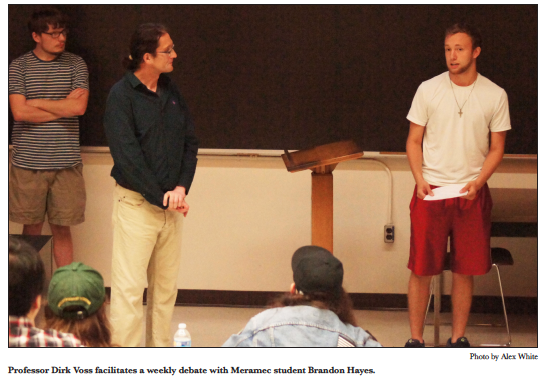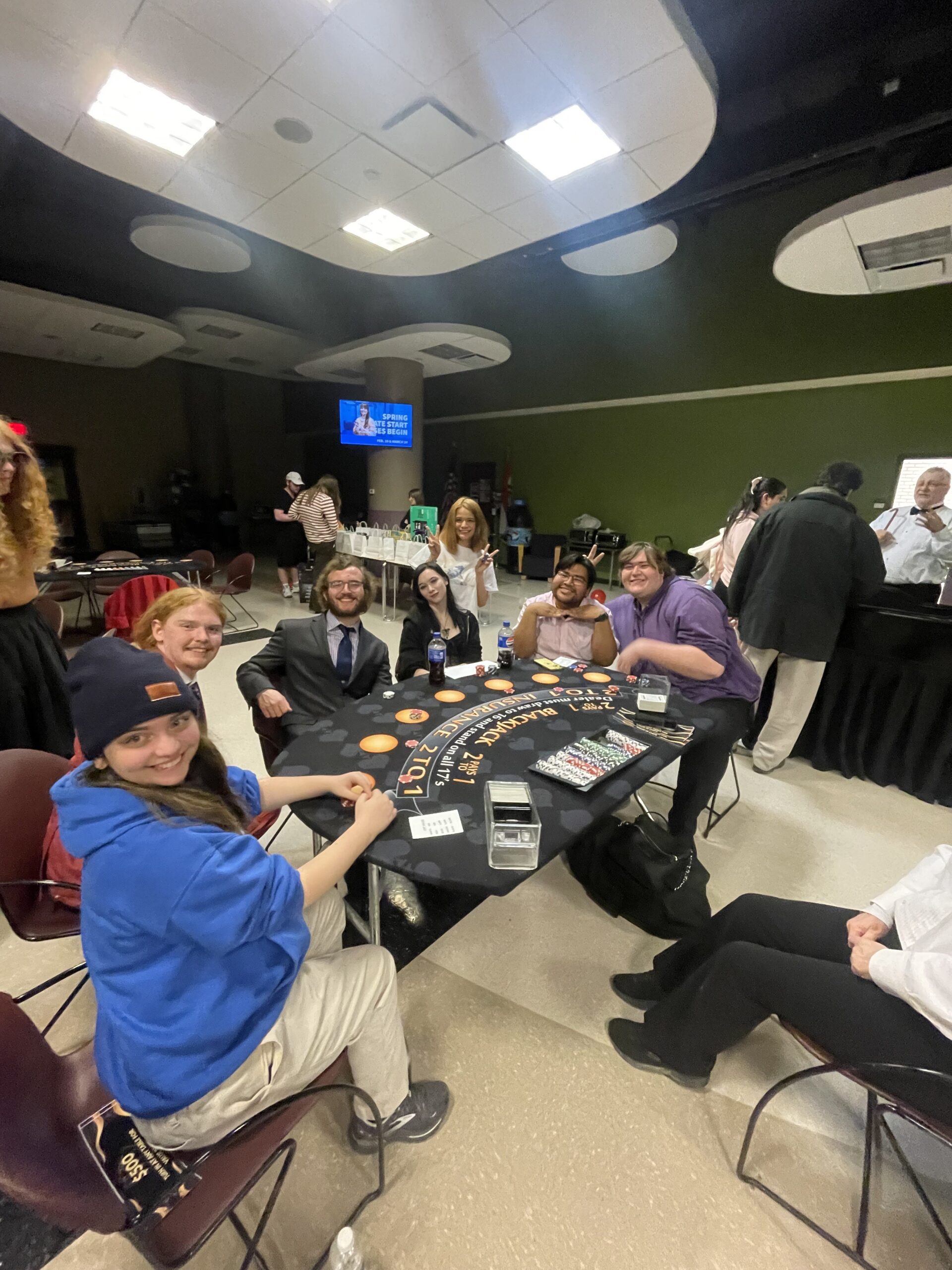STLCC History Professor ‘well rounded’ in nation’s educational, cultural differences
 By: Christian Hargas
By: Christian Hargas
Sports Editor
College History Professor Dirk Voss has always been intrigued with foreign countries and foreign history.
His decision to become a history professor was a very easy one, Voss said.
“I was always good in history. I was not good in other subjects, but I would always get good grades in history. I think the starting point for me was in the seventh or eighth grade. It is a passion, it is really a hobby that has now turned into a job,” Voss said.
Voss is great at teaching and educating students, Meramec student Noah Otte said
“At one time, I felt I was losing my passion to become a history major and history was perhaps too difficult for me; however, Dr. Voss’s teaching style of breaking subjects down—so they are simpler to understand but still give you the main idea—helped me grasp history better. Now, I will continue my education to be a history major,” Otte said.
“I taught as an instructor already when I was a graduate student in the mid 1990s. I became a visiting assistant professor in 2000 at the University of Oklahoma, and then I became a visiting professor in Texas. Then, I became an assistant professor here at Meramec and moved up the ranks,” Voss said.
Voss is very different from other professors at Meramec, Otte said. He has had Voss on three separate occasions.
“I had Dr. Voss during the spring 2014 semester, spring 2015 semester, and this semester [Fall 2015]. He is different from other professors because, as a European, he has a different perspective on American and World History that an American professor of World History would not have,” Otte said.
Voss has taught lessons in China, Germany, Vietnam and Britain. There are differences in the way students learn in Vietnam and China, Voss said.
“In Vietnam and China, they have a great respect and they treat you differently. They stand up and ask a question. It is very respectful; however, if you ask a question —an open question — in China and Vietnam, not a single person will raise their hand. You cannot ask open questions, nobody will answer them. You can only ask very specific questions. I had to completely relearn my teaching and that was very interesting,” Voss said.
While teaching lessons in Germany and Britain, there are differences and similarities in the way students learn compared to America, Voss said.
“The interaction between them [Germany, Britain, America] is similar and it is not so difficult to change. There are, of course, small differences. In Germany, the students ask a lot of very critical questions,” Voss said.
In debates, students are very critical. Most Americans can be too polite to do that in front of the teacher. They are not big differences, but it is interesting, Voss said.
The first thing that struck Voss while teaching around the world was how every culture was focused on their own and not interested in others.
“They think this is normal and everything else is just weird. Germans think that Americans are very strange, weird. Of course, they live in their own little world. Americans also have, of others, a different opinion,” Voss said.
Every culture is eccentric, Voss said.
When Voss taught in Vietnam and introduced himself to a class, he was asked to sing a song.
“I was stunned. I said ‘no, I cannot sing, really, it is not pretty and you know this is a history class’,” Voss said.
After the student sang him an American pop song, he realized that singing was a very imporant thing in Vietnam, Voss said.
“When professors go out, they go to karaoke. That is how they socialize and I thought that is very different, but I enjoyed that,” Voss said.
In other nations, unfamiliar to your ‘comfort zone’, you really have to be prepared for the unexpected, Voss said.
Vietnamese food is a favorite, Voss said.
“When I was in Vietnam, the library director picked me up from the airport and he smoked a cigarette. He took the cigarette out of his mouth and said ‘Dr. Voss, do you like dog?’ I said ‘dog…well I never had dog, so I do not know. Maybe I will or maybe I will not.’ That was one of those moments when you go ‘wow, I am in a really different culture and out of my comfort zone,’” Voss said.
To learn an education system different from a foreign students’ normal adaptation is an understandable struggle because he was one of those students who had to do so, Voss said.
“I had many problems because we were all trained in British English, so we were listening to a much different English accent, which to us is very strange,” Voss said.
German Universities offer grades as a passing grade or a non-passing grade and do not take attendance, Voss said.
“You are here because you want to be here,” Voss said.
Even with differences in foreign education systems compared to the American system, he prefers the latter, Voss said.
“Here [America], you have to sign your name on attendance sheets and you get different types of grades too; however, I like it because it is tough. It really drives you because you do not want to embarrass yourself and you want an “A”. As a grad-student, you have to be an “A” student. If you want to maintain your status and move to a PhD, you really need to pull yourself. I became a better worker in America — a much better worker,” Voss said.
Otte finds Voss’s history classes enjoyable.
“Every day I come to class, I always know I am going to learn something I did not know about history or go more in-depth about a topic I wanted to learn more about,” Otte said.
Otte’s favorite thing about Voss’s classes is he keeps students interested and focused on the topic he is teaching.
“My favorite thing about Dr. Voss as an educator is his enthusiasm for what he does and that he really seems to love history and being a professor in history,” Otte said.
Ultimately he would like for his students to understand that they can make a difference between reality and mythology, in American history and American past, Voss said.
It is really the way we pursue things, really how they happened because if you understand that, then you also understand what happens today, Voss said.
“I am often surprised that Americans sometimes are in complete disbelief at what happens around the world, and they should not be,” Voss said.
As soon as you start to believe in your own mythologies, you are going in the wrong direction because you lose the sense of reality and that is very dangerous, Voss said.
“I hope my students, when they come out of my class, have a much better understanding of what America really is, how it got there, why did it become the greatest power on Earth and what are the dangers to it,” Voss said.










